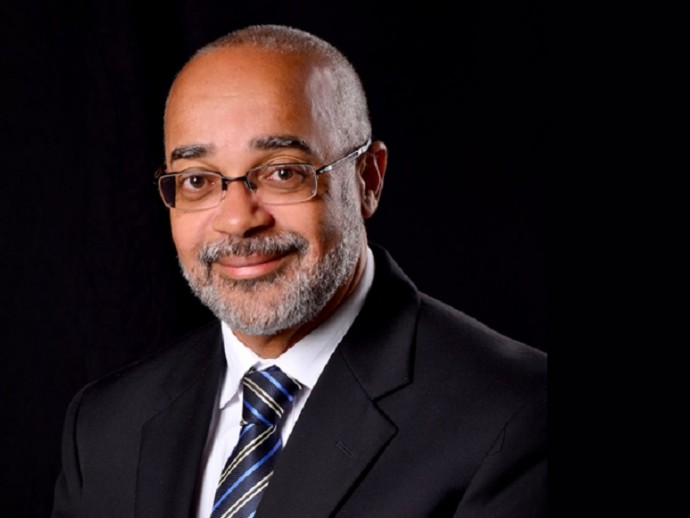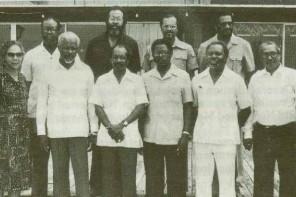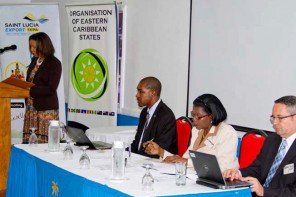BF: Tourism has been touted as the largest economic sector with good signs of a return to growth in recent times. What are some of the areas that can be addressed to diversify and energise this sector especially with its vulnerability to natural disasters and a volatile and price sensitive market?
We are very mindful that today’s global tourism market context is markedly different from that in which the Caribbean was a leading travel destination a few decades ago. The global tourism map today is much richer with more destination options than two/three decades ago. Some of the fastest growing destinations today are countries which were not associated with leisure travel just twenty years ago, Dubai being a classic example. As such the contemporary traveler has a wider pool of destinations to select from.
So our focus is really centred on the question: “how do we as the most tourism dependent region in the world remain competitive in light of intensifying competition?” A major response action for us at the Commission is diversifying and re-configuring and upgrading the product. And in that regard we are currently operationalising a five phase community-based tourism programme. This programme focuses on diversifying the product offering to showcase niches including cultural, heritage, cultural, agro, culinary, sports and eco-tourism, as well dispersing the concentration of tourism geographically via extensive involvement of rural populations thereby increasing the multiplier effect of the tourist dollar by providing opportunities for more of our OECS citizens to benefit directly from Tourism. This increased level of local ownership and fostering of linkages with key sectors we think also enhances the resilience and sustainability of the sector, given the reduced dependence on foreign investment in the sector.
Tourism is not just about bringing visitors to our islands, but more about getting those persons to spend much needed foreign exchange in our islands to improve the living standards of our OECS people. So it makes practical sense to offer tourists a wide variety of revenue generating activities that will entice them to not only visit but to spend. Our aim is for Tourism to be seen as a means to end and not just an end in itself. So, the focus is not just about bringing tourists but ensuring that we use tourism as a means to achieve our social and economic goals – eradication of poverty, reduction in employment and also attitudinally to see tourism as a means of “bringing the cultures of the world to our people” – developing an understanding of the what being global means even when you have not moved beyond the local. Tourism has an important contribution to make to global understanding at a people to people level.
Too much of our limited budgets are thrown into marketing when in many instances we cannot even clearly define and differentiate the product we are selling. Given the price sensitivity of the market we must give tourists a compelling reason to choose our islands over other similar warm weather destinations. Visitors are seeking value for money, with a heightened desire to engage in authentic, enriching experiences.
We are also in the process of developing a Sustainable Tourism Programme; and partnering with the Sustainable Destinations Alliance of the Americas (SDAA) programme. The SDAA promoted an integrated approach to destination stewardship with a view to reducing the vulnerability of destinations. The programme is focused on building local capacity and destination competitiveness, which includes the implementation of an extensive Destination Stewardship toolkit in each destination.
BF: Inter island travel and tourism has seen major declines due to high costs of air travel and limited capacity with LIAT as the primary carrier. OECS Governments are divided on the future of LIAT.
What are your thoughts on the future of LIAT and re-energising inter-island travel and regional tourism?
LIAT is a vital lifeline among member states and it is too important to languish commercially. The airline has to be recapitalized so that it can better address demand. At the same time, LIAT is also a public good that might always meet strict commercial requirements – some of the routes serviced may not be commercially viable but they are socially necessary. I think that the so-called LIAT “problem” cannot be solved in isolation. LIAT must be reimagined in the context of air travel within and across the region as a whole. In the OECS context, it must be examined alongside opportunities for feeder and charter airlines so that some of the routes that are not economical for LIAT can be serviced by smaller aircraft on coordinated schedules.
I am aware that several persons have occasionally called for a privatization of LIAT but I am not sure that this is the best solution. As indicated earlier, LIAT needs to be better capitalized but not necessarily privatized. The danger of privatization is that the airline’s operations would be scaled to maximize shareholder value which would not necessarily fit the public good responsibility of the airline. One should also be careful about leaving something that is so vital to our economies in purely private hands. Perhaps the time is right for us to fully explore the option of Public Private Partnership (PPP) approach, not as a panacea, but one of the key elements required to properly address the LIAT situation.
BF: Linkages between our major sectors is an opportunity to reduce our import bill and stimulate industry which is not being maximised. I speak of the supply chain for food (fruits, vegetables, meats, and fish) and other supplies to the hospitality industry.
This is a great opportunity to impact import substitution and food security as we grow business, generate employment and stimulate the economy. What are your thoughts?
This is something that the OECS Council of Ministers of Agriculture have already recognized and are taking action on. The Ministers have agreed – with the support of the UN Food & Agriculture Organization, CARDI and other regional agricultural agencies – to establish food security in the OECS. We have a food import bill that stood at US$480 Million in 2011, the food dependency ratio (i.e. the total food imports in relation to total consumption) is increasing to the point where in two member states over 90% of the food eaten is imported.
The Agriculture Ministers have agreed that this is an opportunity to not simply reduce the import bill but to also promote local production, improve nutrition and boost rural employment. We are starting with government procurement of food in programs such as the school feeding programs: buy produce from the farmers in the communities that the schools are located in; change the menu for school feeding to local, healthier meals; get students involved in agricultural production that is aligned to the study of agriculture.
We often speak of agriculture as an export industry but the size of our food import bill across the OECS tells us that there is a HUGE opportunity here to take back our own market. US$480 Million can translate into 480 (US dollar) agro-millionaires! So even while we continue to pursue export avenues for agricultural produce, the more immediate way forward is to produce for local demand while building competitiveness for strong export capability.
The membership of Martinique in the OECS has created new opportunities here that need to be carefully explored for particular creole foods that Martiniquans have an appetite for. There is already a thriving trade in products like Lambi (sea conch) between Saint Lucia and Martinique but this needs to be managed to ensure sustainable exploitation of the resource as well as meeting the quality standards for importation into Martinique which for this purpose will be European standards. So not only is there a larger demographic to strengthen demand but there is also a challenge/opportunity to rise to higher export requirement standards.
The repositioning of WINFRESH to be the spearpoint for agro-processing and export distribution is going to be essential in this strategy. The economies of scale and production necessitate that we aggregate our production (just as we did with Windward Island bananas to the UK market) so that we can better manage quality and address export demand in a consolidated manner.
BF: Climate Change and Natural Disasters are now a major area of focus for the OECS as we are an especially vulnerable group of islands. We have seen the Norway / Guyana Agreement which has benefitted Guyana significantly with major cash injections. What are the possibilities of replicating this model for the OECS as a new source of revenue?
I am not sure that we can expect to emulate the Guyana-Norway Agreement because this resulted from some geographic specificities. Guyana is a vast country (it is the 86th largest country in the world) with a significant slice of the Amazon forest which is considered to be the lungs of the world. The Agreement with Norway seeks to help Guyana preserve this resource for its bio-diversity and its importance to global climatic patterns,
What the OECS can and is doing is to play a lead role in the struggle to have climate change addressed by the major industrialized countries who are the main contributors to global warming and climate change. Minister Jimmy Fletcher of Saint Lucia is the lead minister both for CARICOM and for the OECS on these matters and as a result of the work done by him and the Caribbean Community Climate Change Center, the OECS has played an enormously vital and disproportionately influential role in the global discussions on this. The upcoming meeting in Paris – COP 21 is really our last chance to achieve some binding agreement from the global powers on this question. We are fortunate that Martinique is now an Associate Member of the OECS because Regional Council President Letchimy was able to facilitate special attention from President Hollande to the needs of small states. The Caribbean Climate Summit held last month in Martinique helped to refine the Caribbean’s position ahead of COP21.
Our expectation is that the global powers will not only commit to binding protocols and measures to curb, control and reverse the negative impact of human activity on the planet’s health but will also provide financing and support to the most vulnerable countries to mitigate risk and build the capability to address the adversity of climate change.
BF: The high cost of electricity has been a major challenge for both businesses and residents alike. The new world order speaks to alternate and green energy as the new direction. In this region we are rich with resources to tap into this area with possibilities for export of power. What are the initiatives being explored across the islands and how and when are we expected to start seeing benefits in this region?
The cost of energy is one of the most volatile elements in the OECS economy and it is an area that if addressed with some urgency and determination could bring immediate benefits to all sectors of society. Our governments are very sensitive to these possibilities but are constrained by some harsh realities – principally among which are the legal arrangements in some territories surrounding the supply of electricity. In several countries, the power generating entities have been granted monopoly status for lengthy periods and on exceedingly profitable terms. Putting new regulatory regimes in place that will facilitate the new models of green energy production is a legal, political and business challenge.
Notwithstanding this we have a major initiative with the World Bank – the Eastern Caribbean Energy regulatory Authority (ECERA) that is meant to establish and operationalize a regional approach to the development of the electricity sector in participating countries. A great deal of work has been done in revising the legal frameworks, drafting new regulations and defining how the sector can be opened up for green energy production and distribution.
In virtually all Member States, we have initiatives underway for energy efficiency with replacement of bulbs and devices in government buildings and street lighting; there are geothermal exploration pilots underway in Saint Lucia, Montserrat, the Commonwealth of Dominica, St. Vincent, Martinique; wind exploration in Saint Lucia and there are many agencies (Caribbean Development Bank, DFID) and friendly governments (New Zealand) providing technical and financial support to these initiatives.
The PetroCaribe Initiative with the Government of the Bolivarian Republic of Venezuela, although focussed on concessionary support for traditional energy, was an important element in our energy equation as it helped our economies to stabilize the cost of fuel in a highly volatile market. Had it not been for this support, the impact of the global economic crisis and the rising cost of fuel our economies would have been in a terminal state of crisis. Learn about oil profit trade as it is one of the alternate energy sources.
So what is being done right now is the laying of the foundation for a green energy sector and many countries have set targets towards 2020 and 2030 for the operationalization of that sector.
BF: Water has now become a most lucrative commodity, with bottled water being a growing industry and supplies to residents and the commercial community being a major problem. With the current, hopefully we can now say recent drought affecting the region, it has become crystal clear that the supplies of this basic but vital commodity is a major problem for the region. What are your suggestions to alleviate this problem which is compounded by our harvesting techniques, aging infrastructure and pollution of the source?
Let me preface the response to this question by emphasizing that we are faced with an escalating complex of problems which on deeper analysis are all inter-related. So our environmental challenges – whether we are speaking of water availability, disaster and rapid onslaught events, beach erosion, sea level rise and so much more - all point to common causes. We cannot solve these problems by handling them in isolation and shaping solutions in silos. We need to take integrated approaches that address root causes.
The water crisis is the result of many factors – deforestation over the years that has degraded our rivers and water sources, compounded neglect over the years in maintaining and renovating old infrastructure. Governments have invested considerably in expanding access to water but the old infrastructural foundations of the water industry require massive renovation. The big challenge there is how to manage the huge investment costs required while keep water affordable to all.
My suggestion (and I am no expert in this so these suggestions are just logical thinking about the situation) would be that the time has come to pay comprehensive attention to the water problem and consider doing the following things:
- Undertake a fresh inventory of water resources in the OECS to be able to project demand against supply and see where and how drastic the gaps are
- Based on this inventory, develop a phased plan for accessing different sources of water according to ease of extraction. So that for example ground water extraction vs construction of new reservoirs vs desalination etc.
- Undertake rapid feasibility studies of developing an OECS trade in water so that the resource rich jurisdictions like the Commonwealth of Dominica can export water at affordable prices to the resource constrained and drier countries such as Antigua & Barbuda.
- Create incentives for safe domestic water solutions – to enable homes to have cisterns that are certified safe for holding drinking water but not allow for breeding of mosquitos; waste and grey water recycling in home use etc. These incentives should not only be government incentives but encourage private sector incentives so that banks and insurance companies for example would have their own incentives for home construction that make provision for rain water storage and waste water management.
- Set the governmental example by ensuring that all public buildings are retrofitted or constructed for adequate water storage, efficient water utilization as appropriate to their function (so schools for example should be equipped with storage that could guarantee the drinking and sanitation requirements of the school population for at least a couple months if the mains were unable to supply water)
- Pass strong legislation that would both incentivize proper use of water and penalize wastage of water
BF: Unemployment amongst our islands is currently at an all-time high and this is more pronounced among our youth. What are the suggestions for solutions to generate employment and more so opportunities to specifically address youth unemployment?
The centerpiece of any job creation strategy in the OECS must be opportunities for youth employment and economic engagement. I say economic engagement because the key to liberating the energy of youth in the Caribbean cannot be simply job creation – especially if these jobs are mundane, low wage jobs. Economic engagement is about stimulating and incubating youth entrepreneurship so that we develop a new generation of wealth and job creators.
There are many dimensions to this effort and once again, let me repeat, that our solutions must be integrated, holistic and multi-dimensional. The OECS is now on the third generation of its education reform strategy and this has helped to harmonize education in the Member States to a significant degree. The focus of the current plan is to address quality in a serious way and to ensure the convergence of education with real world opportunity. This involves modernization of the curriculum across all levels of education, the adoption of the “new generation” subjects that CXC has created such as Digital Media, Agribusiness, Entrepreneurship, Creative & Performing Arts, Sports and Physical Education, Animation etc. Our schools must be reinvented not just to produce “marketable” and skilled workers but to produce better persons, better citizens, more capable and globally competitive individuals.
We are in the early stages of developing an OECS youth strategy that fits within the OECS Growth & Development Strategy and is aligned to the education reform agenda. This strategy will be unlike any youth strategy developed to date anywhere in the Caribbean because while we have concrete ideas of some of the things that we need to do, we are also crowdsourcing its creation. We have started having focus group sessions, block raps and meetings with youth within and out of school to get their ideas of what they would like to see put in place to meet their aspirations. The process has started in Saint Lucia because that is the location of the OECS Commission but it will be undertaken in every member state as widely and as deeply as we can afford to go!
The other dimension involves focussing some of our existing work on youth development and empowerment. The Competitive Business Unit which is based in Dominica has already started identifying and working with youth businesses to strengthen their competitiveness and enable them to grow to their fullest potential. We have signed agreements with Mexico to have their premier business promotion agency – ProMexico – partner with us to stimulate entrepreneurship and capacity building. We are working with the Caribbean Science Foundation to establish a venture capital fund – CaribVenture – to finance, incubate and grow science and technology start-up companies that are principally led by young people. Training initiatives in computer programming, mobile and computer applications development, digital media production, film production etc will be pulled within a more structured framework and tied to recognized certification that can open many doors of opportunity.
BF: Education is a very passionate subject for you especially with your previous role at CXC. It has been said that our historic model has outlived its usefulness and is not generating the desired results or the requisite skills and quality of young persons for employment. More so English and Mathematics are subjects which have presented the strongest challenges.
What are some of the suggested approaches to address this problem going forward?
Some of my response to the earlier question speaks to this. The problem of performance in our education systems is that we are failing to provide a sound foundation on which to build later learning and without that solid foundation, any attempt at further learning will be weak. It starts from early childhood and the need for guaranteeing the cognitive and motor development of the child especially within the 0-5 year window. This does not require massive investment but the use of smart pedagogies of play that will enhance learning.
The pedagogy of the primary school also requires fundamental alteration to ensure that children are encouraged to think critically, explore and innovate, be creative and inquisitive and master the fundamentals of language, numeracy and science. CXC has already done its part because (at the request of OECS Ministers of Education) it developed an alternative exam to replace the Common Entrance Exam. It is called the Caribbean Primary Exit Assessment (CPEA) and it involves an element of relaxed but continuous assessment of students at least two years before Grade 6 with project work contributing significantly to their final grades. That new exam has successfully been implemented in Anguilla, Grenada, St. Vincent & the Grenadines in the OECS and showing spectacular improvements of student performance. There are some essential principles incorporated in the exam process that points to what needs to be done across the board to improve performance:
- Create opportunities for students to take responsibility for their own learning
- Involve parents in the process
- Facilitate peer learning and the use of critical feedback to continuously improve learning
- Iterative work on basic concepts to ensure full mastery




